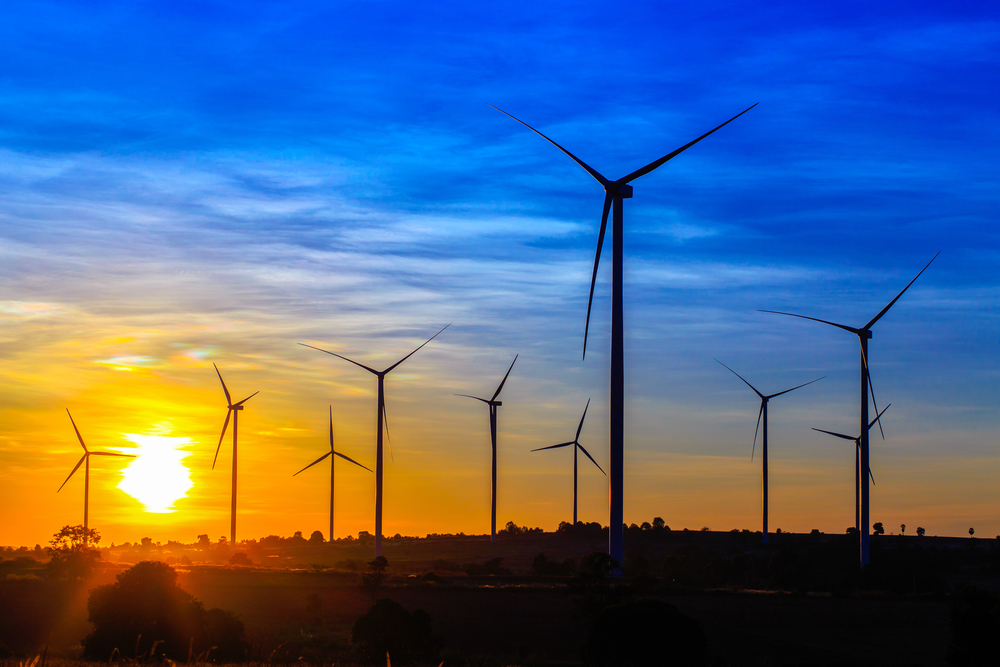Time for clear the air talks

Let me clear the air…Syntegra is not a political beast. We have no political affiliations or allegiances. We simply want what’s best for the planet and, as a secondary spin-off, UK businesses. But against that backdrop, there is a lot we need to say to campaign on our mission which is born from political announcements […]
CO2 Emissions – we can’t afford to ignore them

Nobody said changing public attitudes to tackle climate change would happen overnight. The international community was always going to struggle with different perceptions of the problem, its scale and causes. And scientists and policymakers realised early on during the debate that they would face challenges and criticism over the long haul. In the space of […]
Change of direction as wind power overtakes coal in EU power generation

For the second consecutive year, the UK was Europe’s biggest investor in wind energy with €12.7bn spent on the construction of new onshore and offshore wind farms, new figures reveal. This accounted for 46% of the total wind energy investments in 2016 and brings the total number of turbines in the UK to 14,452 compared […]
Your water, your choice

It’s that time of year when you turn on any TV or radio news channel, one of the headlines is the cost of gas and electricity and how we should all switch suppliers. And apparently last month record numbers of us, ever keen to cut costs, did just that. Maybe it’s something in the title […]
Commission proposes EU 30% energy usage reduction by 2030 evoked discussions
A 30% energy use reduction by 2030 has been suggested by the European Commission. This is part of a set of objectives for 2030 following from existing goals for 2020, in regards to emissions, energy use and renewables. The 2020 energy efficiency target was set at 20% above 1990 levels, however the commission have admitted […]
Did you know? £10 million is available this year to improve efficiency and reduce energy demand
Energy and Climate Change Secretary Edward Davey announced that £10 million will be available this year to improve efficiency and reduce energy demand. Mr Davey told the CBI that the changes were part of the Government’s strategy to create an energy secure, energy efficient economy. The report published on 17 July 2014 shows that energy […]
Energy Efficiency in SME Office Buildings: practising what we preach!
Thames Valley Chamber of Commerce Group organises over 200 events per year, which vary from focused networking events to specialised speaker events; covering subjects such as property, transport and international trade. One of the sessions for Energy Forum was held on Thursday 17th July 2014 10:00 – 13:00 hrs. in SEGRO- slough. With the theme […]
Air Conditioning Systems to meet New Legislation
What is this new legislation? After January 1st 2015 “the use of recycled HCFC’s will be prohibited in the maintenance and servicing of refrigeration and air conditioning equipment existing at that date” (www.r22-legislation.co.uk, 2014). Why is this legislation being brought in? Because of the environmental damage that the use of R22s cause, specifically ozone depletion […]
The Code for Sustainable Homes and the New Welsh Part L1A
Developments in Wales will be able to register against the new 2014 Welsh Part L1A which associates with the changes in the planning system relating to TAN 22 from the 31st July 2014. An addendum, similar to the English version, will be published as soon as the government in Wales recognises the fact that there […]
Life Costing Analysis: Cost and Carbon Efficient Construction
Life-time cost and carbon savings can be easily made by making small simple specification changes to a base design of a building. The materials and components chosen for a building will have an impact on a building’s performance, both financially and economically throughout its lifetime. Financial and environmental costs should be coupled together whenever thinking […]
The Queen’s Speech to Both Houses of Parliament on 4th June 2014 Will Have Great Positive Impact on energy Efficiency and Environmental Design in Building Industry.
This speech commenced with an introduction by the Prime Minister David Cameron MP and Deputy Prime Minister Nick Clegg MP. During which the prime minister mentioned that the “Queen’s speech marks the next big step in our long-term plan for Britain”. The speech comprised of various main subjects including: – PENSIONS TAX BILL – PRIVATE […]
Biological Living
Imagine a world where man-made machines are not powered by the combustion of organic materials, or the use of rare earth minerals to extract energy from our environment. Where humans and other living organisms work together to create a sustainable environment for the future. This dream is slowly becoming a reality with research into the […]
G7 ENERGY SUMMIT
The G7 Energy summit which took place on the 5th-6th May 2014, had the main aim of setting a common energy policy in order to ensure a reliable, diversified and economically sustainable energy supply on a worldwide scale. The main statement considerations regarded the need to address energy security challenges of developments in Ukraine as […]
UK ENERGY IMPORTS
The UK is reducing the number of coalmines by 97% which is causing a further import of 45m tonnes, composed for the majority of steam coal used mainly by electricity generators. In terms of gas, with a demand running at 67 mtoe, the UK has a considerable import requirement. On the other hand, renewables are […]
CHP CARBON TAX EXEMPTION
CHP carbon tax exemption is one of the financial incentives which has the main aim to reduce UK’s carbon usage and provide cost-effective solutions. In order to realize these savings it is necessary to install and operate systems to take financial benefits from these. Geoff Hobbs, Business Development Director at Bosch Commercial and Industrial Heating, […]
RENEWABLE ENERGY INVESTMENTS: A CASE STUDY
The Energy Efficiency Investments have benefits both in terms of cost and energy consumption reductions. The Energy Department have more than 120 manufacturers that have made smart investments to save on energy costs as well as cut greenhouse gas emissions improving their bottom lines. The Bernard Matthews’ turkey farms represent an example of investment in […]
ENERGY TRIADS
Triad charges are related to National Grid’s transmission charges, they represent a great bonus for generating exported power at peak demand times. They consider three half hours between November and February each year and calculate the average demand on the national grid during these three periods. These have to be separated by a minimum of […]
Domestic Renewable Heat Incentive Update
The Domestic Renewable Heat Incentive, launched on 9th of April 2014, aims to promote the use of renewable heat in order to reduce the UK carbon emissions and have by 2020 at least 12% of heating coming from renewable sources. This is a part of the Renewable Heat Incentive which is formed by two schemes: […]
The UK’s reducing electricity supply capacity
The Ofgem Electricity Capacity Assessment Report 2013 points out the risks to electricity security of supply over the next six winters has increased respect to the past. Furthermore, the risk of electricity customer disconnections will appreciably increase, albeit from near-zero levels. The problem of electricity supply is more during the peak hours in which there […]
What is “Soft Landing “?
Every project team should run its Soft landing process mapping out roles and responsibilities for all the members of the team. The major aims of the soft landing process is to improve the operational performance of buildings also providing valuable feedback to the project teams. An important part of the process is the creation of […]
ESOS
The Energy Saving Opportunity Scheme (ESOS) main aims is to reduce demand for energy from industry, businesses and the public sector, to reduce the UK’s greenhouse gas emissions by 80% by 2050 and helping households to cut their energy bills. Adopting ESOS the UK’s government meets the requirements set out in Article 8 EU Energy […]
ENERGY PERFORMANCE CONTRACTING (EnPC)
The energy performance contracting (ENPC) could be defined as a financial mechanism which incorporates energy conservation measures. Furthermore, currently it is an obligation of the UK government to provide guidance to all the organisations that would like to enter into an EnPC. In fact, despite the fact that they have been around in the UK […]
Commercial EPC legislation update
The Energy Act 2011 set a wide number of provisions including EPC minimum standards requirements for residential and commercial properties. About 20% of non-domestic properties could be in the F and G ratings bracket. Furthermore, also some prime properties will be in this situation and not only secondary or tertiary stock. In the properties in […]
LOW ENERGY COMPANY (LEC)
Due to the increase in commercial energy costs in the last decade, further measurements in order to provide a more efficient and lower costs energy management are necessary. In order to act a cost reduction a concerted effort to train employees in how to most efficiently manage energy in the workplace could be an efficient […]


You must be logged in to post a comment.